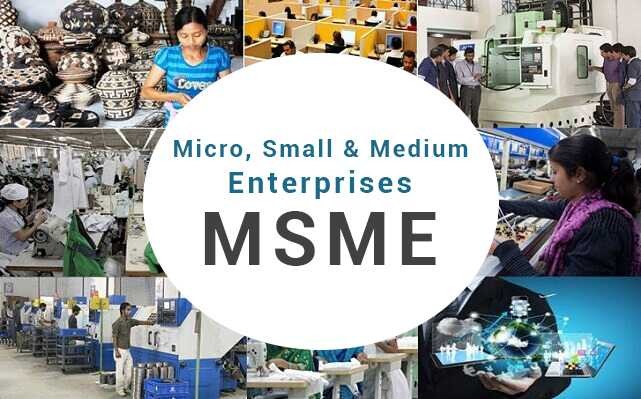Zafar Iqbal
In economies worldwide, micro-, small, and medium-sized enterprises (MSMEs) play a crucial role, constituting 90% of businesses, providing 60 to 70% of employment, and contributing to 50% of GDP. These enterprises form the backbone of various societies, making significant contributions to local and national economies and sustaining livelihoods, especially among the working poor, women, youth, and vulnerable groups.
MSMEs, with the right support, have the potential to not only drive economic transformation but also to facilitate job creation. The MSME Day event serves as a platform to underscore their essential role and identify opportunities for their further development.
The United Nations General Assembly has specifically designated 27 June as “Micro-, Small, and Medium-sized Enterprises Day” (A/RES/71/279) to raise awareness about the substantial contributions of MSMEs. These enterprises play a significant role in realizing the United Nations Sustainable Development Goals (SDGs), making their recognition and support crucial.
The global workforce is expected to grow significantly by 2030, necessitating the creation of around 600 million jobs to accommodate this expansion. MSMEs, particularly in emerging markets, play a crucial role in job creation, accounting for the generation of 7 out of 10 formal jobs. This underscores the significant employment opportunities that MSMEs can provide, reassuring the audience about the future job market.
However, smaller firms in the least developed countries (LDCs) face disproportionately greater challenges in accessing finance compared to their counterparts in middle-income countries (MICs) and high-income countries (HICs). A substantial 41 per cent of SMEs in LDCs cite limited access to finance as a significant obstacle to their growth and development. In comparison, 30 per cent of SMEs in MICs and only 15 per cent in HICs report similar constraints.
The disparity in access to finance among SMEs in various countries underscores the urgent and pressing need for targeted support and interventions. These are not just beneficial, but crucial to facilitate the growth and sustainability of small businesses, particularly in LDCs. This emphasis on urgency underscores the importance and immediacy of the issue.
Please, subscribe to the YouTube channel of republicpolicy.com
As we set sail into uncharted territories of economic development within a world undergoing rapid transformation, the significance of Micro, Small, and Medium Enterprises (MSMEs) and the principles of the circular economy becomes strikingly clear. These enterprises, collectively constituting 90% of businesses globally, are responsible for providing employment to over 70% of the workforce and contributing to 50% of the Gross Domestic Product (GDP) across the world. Their enduring role as the cornerstone of various economies remains indispensable.
The evolving framework of the circular economy places a strong emphasis on a people-centric approach, underlining the paramount importance of individuals and communities in driving sustainable transformation. By prioritizing the well-being of people and advocating for the inclusive participation of all stakeholders, this approach ensures that new economic systems are intricately woven into the fabric of local cultures and are finely attuned to the diverse personal and institutional needs of the population.
The theme chosen for 2024, “MSMEs and the SDGs: Leveraging the Power and Resilience of Micro-, Small and Medium-sized Enterprises (MSMEs) to Accelerate Sustainable Development and Eradicate Poverty in Times of Multiple Crises,” presents an important focal point for reflection. It highlights the pressing nature of the current situation as the deadline for achieving the Sustainable Development Goals (SDGs) by 2030 draws near. The theme emphasizes the urgency of addressing the observed lag in progress towards the SDGs. Many countries are contending with a complex web of interconnected development challenges, including but not limited to a cost-of-living crisis, constrained fiscal capacities, impediments to accessing new sources of development and climate finance, and ongoing conflicts. These multifaceted economic, social, and environmental challenges are exacerbating the prevalence of poverty and hunger on a global scale.
In light of these circumstances, the 2024 International MSME Day presents a pivotal opportunity to delve into substantial discussions and idea exchanges. The aim is to ascertain how various stakeholders – ranging from policymakers to major corporations, financial institutions, and the international community – can effectively bolster micro-, small, and medium-sized enterprises. The overarching goal is to propel the 2030 Agenda forward and make meaningful contributions to the realization of the SDGs, particularly in the domains of poverty eradication and the promotion of decent work for all. This theme underscores the pivotal role that MSMEs can fulfil in addressing these critical issues and their potential to serve as engines of sustainable development and poverty alleviation.
















